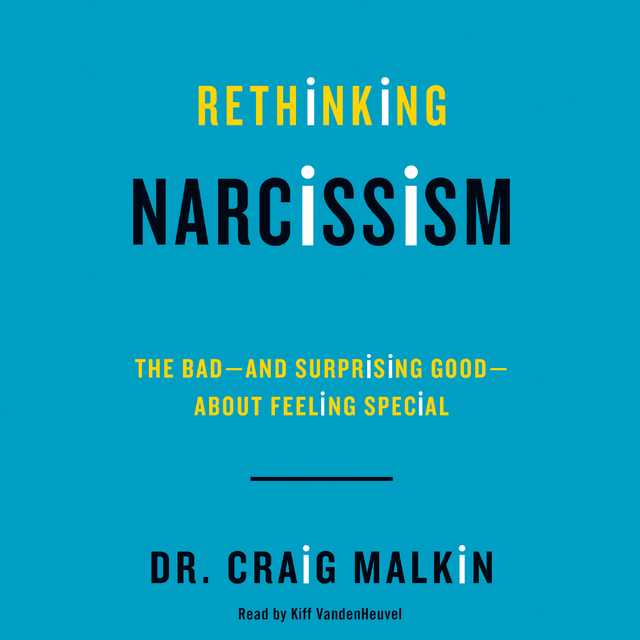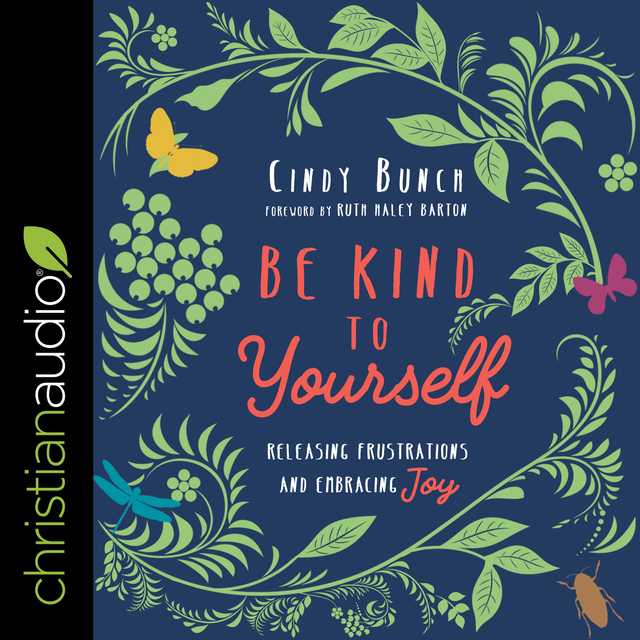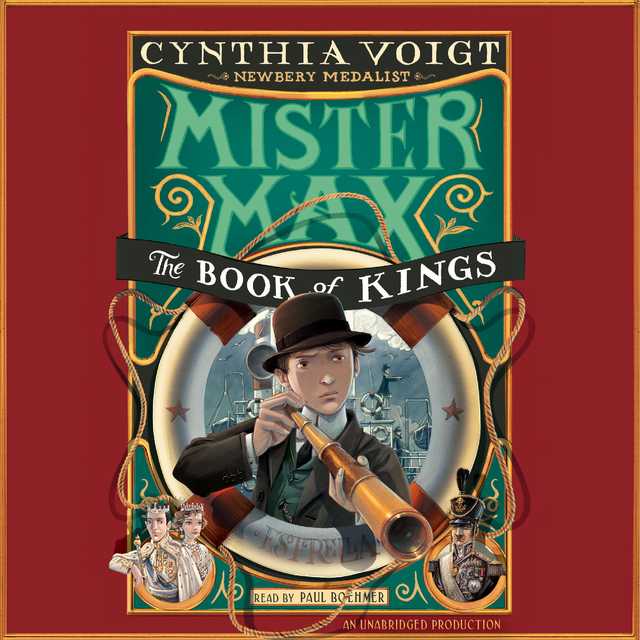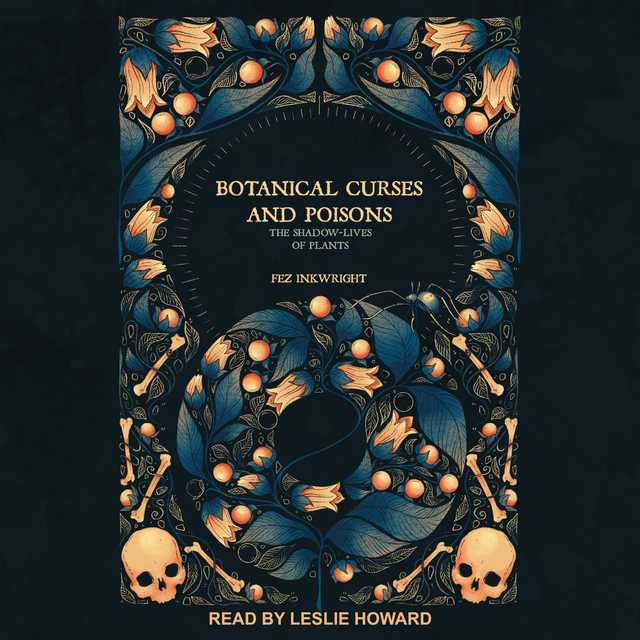Rethinking Narcissism Audiobook Summary
Harvard Medical School psychologist and Huffington Post blogger Craig Malkin addresses the “narcissism epidemic,” by illuminating the spectrum of narcissism, identifying ways to control the trait, and explaining how too little of it may be a bad thing.
“What is narcissism?” is one of the fastest rising searches on Google, and articles on the topic routinely go viral. Yet, the word “narcissist” seems to mean something different every time it’s uttered. People hurl the word as insult at anyone who offends them. It’s become so ubiquitous, in fact, that it’s lost any clear meaning. The only certainty these days is that it’s bad to be a narcissist–really bad–inspiring the same kind of roiling queasiness we feel when we hear the words sexist or racist. That’s especially troubling news for millennials, the people born after 1980, who’ve been branded the “most narcissistic generation ever.”
In Rethinking Narcissism readers will learn that there’s far more to narcissism than its reductive invective would imply. The truth is that we all fall on a spectrum somewhere between utter selflessness on the one side, and arrogance and grandiosity on the other. A healthy middle exhibits a strong sense of self. On the far end lies sociopathy. Malkin deconstructs healthy from unhealthy narcissism and offers clear, step-by-step guidance on how to promote healthy narcissism in our partners, our children, and ourselves.
Other Top Audiobooks
Rethinking Narcissism Audiobook Narrator
Kiff VandenHeuvel is the narrator of Rethinking Narcissism audiobook that was written by Dr. Craig Malkin
Dr. Craig Malkin is an author, clinical psychologist, and lecturer for Harvard Medical School with two decades of experience helping individuals, couples, and families. His articles, advice, and insights on relationships have appeared in newspapers and magazines such as Time, the New York Times, The Sunday Times (London), Psychology Today, and Women’s Health, as well as countless other magazines and websites. He’s also been featured multiple times on NPR, CBS Radio, and the Oprah Winfrey Network channel; appeared on various local morning shows; and been a guest on more than sixty radio stations here and abroad. Dr. Malkin is president and director of the Cambridge, Massachusetts-based YM Psychotherapy and Consultation, Inc., which provides psychotherapy and evidence-based couples workshops. He lives in Boston with his wife and twin girls.
About the Author(s) of Rethinking Narcissism
Dr. Craig Malkin is the author of Rethinking Narcissism
More From the Same
- Publisher : Harper Wave
- The Body Book
- The Disease Delusion
- Supersurvivors
- Epic Measures
- In A Dark Wood
Rethinking Narcissism Full Details
| Narrator | Kiff VandenHeuvel |
| Length | 6 hours 6 minutes |
| Author | Dr. Craig Malkin |
| Category | |
| Publisher | Harper Wave |
| Release date | July 07, 2015 |
| ISBN | 9780062417985 |
Subjects
The publisher of the Rethinking Narcissism is Harper Wave. includes the following subjects: The BISAC Subject Code is Anthropology, Cultural, Social Science
Additional info
The publisher of the Rethinking Narcissism is Harper Wave. The imprint is Harper Wave. It is supplied by Harper Wave. The ISBN-13 is 9780062417985.
Global Availability
This book is only available in the United States.
Goodreads Reviews
Thomas
May 15, 2022
A well-balanced and readable book about narcissism. Craig Malkin does a great job of describing narcissism using everyday language while still capturing the complexity of the condition. One of my main takeaways from this book is that having a moderate level of narcissism can be quite healthy – it’s
Laura
August 17, 2015
Thank you Dr. Malkin for a refreshing view of the general population, as well as, insight into true narcissism.Dr. Malkin eased the readers into the book by providing his first hand experience of the narcissist in his life that lead him into his journey of becoming an expert in narcissism by way of
Ashley
June 18, 2018
This phenomenal book has inspired in me so much wisdom, warmth, positivity and spiritual strength. I would recommend it to anyone who wants to enhance any form of relationship as I believe that it's not just for those who'd like to learn more about narcissism. Rather, it's a book that can help people discover and cherish themselves whilst bringing out the best in others. I have no idea how Dr Malkin has done it but throughout the time I've spent reading the book up till this very moment, I've felt like I've been glowing with positivity and even joy! It's a lovely experience! I just know that Dr Malkin has written his heart out because I feel his genuineness within this gem of a book! Well done Dr Malkin! You've blown my mind and inspired me to pursue my passion of being a 'juniorist'(a term I've invented as a catchier label for a children's rights advocate). Hahaha! Let's work towards 5 on the spectrum everyone! I'm at 4, by the way!
Ilana
June 13, 2020
Narcissism, is part of human nature and is expressed on a scale. We need a certain amount of narcissism to feel self-confident, assert our needs, and follow our dreams. Too little narcissism leads to dissatisfaction and sacrificing our needs to benefit others. Too much, as we are well aware by now with all the media attention on narcissism as a personality disorder, leads people to ignore the feelings and needs of others, self-agrandissement, and in the highest levels, to pathological, harmful and sometimes dangerous behaviours. This book offers a balanced outlook on a character trait we’ve seen exacerbated in the past decade or two, in part thanks to social media. We are given tools to understand the mechanisms and identify narcissism at various points in the scale. The roots of narcissistic behaviour are explored, and tips on how to manage relationships with various people in our lives who present strong narcissistic tendencies are offered. An interesting read.
Catherine
July 04, 2016
I had heard so much about narcissism being a negative thing. When I realized someone I loved dearly was narcissistic, I was told this person could never change and I needed to run. I did not like the answers I was getting elsewhere. I appreciate that Dr. Malkin explains that narcissism is a behavior or habits that can be changed (if the person is aware of their behaviors and willing to change). "Rethinking Narcissism" really helped me understand this person better and taught me some communication techniques to protect myself from the constant drama.
Brian
June 21, 2015
This is a users manual for the human mind. You have to read this.
Zibi
January 23, 2022
Great book for self-reflection and also noticing problematic behavior in your peers. It offers tons of information and suggestions on how to deal with narcissistic (and echoist, its opposite) people. It dives into topics of relationships, friendships, work-space, parenting and also social media.Can whole-heartedly reccommend.
DeAnna
January 10, 2019
A short, snappy book on narcissism that is more than "narcissim bad," but doesn't put the onus on fixing toxic narcissists on you.This was good. I picked this up because I read an article by the author on "echoists," or people who are the opposite of narcissists, and was like, "How dare you know me!" This book addressed that, but also how to deal with narcissists, what makes them tick, and strategies for coping when you can't get out or you want to test whether you can fix the relationship. I was afraid that the book was going to imply that it was somehow the job of people around a narcissist to cope with them--but it wasn't. I wanted more strategies specifically on coping with echoists and how an echoist can start bootstrapping themselves out of it, but, not having them specifically, I still found this hugely useful and a relief.
Connie
April 26, 2017
I believe art creates positive, long lasting memories. I believe it is intelligent and energizing. It is by far my favorite way to connect with another human, second only to politics. Show me something you’ve written, painted, performed, or otherwise created. Then, tell me about your politics. Repeat. Though I forget many things, I never forget a person’s art or politics. So how does that paragraph factor into rethinking narcissism?Many people think artists and politicians are narcissists. In fact, in this book, performers and politicians rank in the top tier of unhealthy narcissists. I get it. How often have we heard, “She’s so self-absorbed” or “His ego is out of control”, or, “He’s a complete and utter narcissist” when describing someone prominent in the arts and/or in government? I know I have lost count. Unfortunately, all those remarks about another person’s alleged narcissism and/or egoism have scrambled my focus. On the one hand, is that the only thing you see in that person? On the other hand, you have a point. On the other hand, OMG maybe I am a narcissist. On the other hand, so what if I am. On the other hand, should I quit art? On the other hand, wait, is art firing me? On the other hand, should I quit politics? On the other hand, is that even possible? On the other hand, how much time did I just waste not actually working on art or politics? Narcissists destroy confidence. Confidence in art, confidence in good government, confidence in smart leadership, confidence in so much. Echoists let them. And if artists and politicians aren’t vigilant, they can easily slide into becoming narcissists, or, at the very least, echoists. And who wants that? No one. So I read this book and I am glad.It is written that we each have certain degrees of narcissism and echoism. True dat. I read the book to see where I fall, where I need improvement, and learn where I can improve. I first listened to most of this in the car with the kids. The loan ended just before the chapter on Social Media, which is quite near the end. Anyway, we all liked it, as it’s helpful/instructional for parents and children, too, not just artists and politicians. After listening, I read the book. The hard copy helped me understand the quiz and the degrees of narcissism better and it is oddly fun to read this in public with the front cover showing as much as possible. If you find yourself in a field of narcissists, or just encountering an occasional narcissist, or even wonder if you are one, I recommend reading this book. We were each born with an ego and the ability to echo. Why not learn a little more about such things?Signed,What did the waffle say to the fork? “Lego my ego.” I just made that up. And I know that it is not funny. That is my one warning to you. If you read this book, you will stop being funny or clever for a long, long minute. It will make you sort of…stop. But in a good way. If you can live without feeling particularly inspired, this is a positive, educational reading experience.
Raviteja
February 06, 2017
A new perspective to Narcissism !!! I thoroughly enjoyed reading the book. Different cases on different levels on the spectrum of Narcissism were very well presented. You may not agree with some of the arguments presented by the author, but it is interesting to see from a different angle.
RevDrJude
February 24, 2016
Dr. Craig Malkin devoted himself to understanding narcissism because his mother was a narcissist. A clinical psychologist and instructor of psychology at Harvard Med School, Dr. Malkin is the author of this book and many articles. His insights and advice on relationships are applicable to couples, families, social media and the workplace.I had to read his book because the word narcissist has been getting thrown around in my world quite a bit the last few years. When my ex told me he didn’t love me anymore it was because he was convinced I was a narcissist. My therapists and friends say, no, he is the narcissist. So you see my dilemma!The myth of Narcissus includes a young man whose reputation for both his gorgeousness and his indifference was renowned. He thought of himself above any kindness and love. The woman in the myth is named Echo; she has no voice of her own. Dr. Malkin presents narcissism on a spectrum from 1 to 10. Moderate narcissists fall in the middle, between 4 and 6. Moderate narcissism, the doctor says, can actually enhance love. People who fall on the spectrum between 2 to 3 and 7 to 8 have some bad habits that can be corrected. Echoism, the absence of narcissism and on the spectrum from 0 to 1, most likely requires hospitalization with little hope of recovery. Extreme narcissism, on the spectrum between 9 and 10 is considered an addiction and also requires treatment with less than optimal outcome expected.The true narcissist displays “a complete lack of remorse and a penchant for manipulation; people who simply enjoy speaking their mind or being in charge are clearly different from narcissists who enjoy manipulation and lies; only people who never feel special or feel special all the time pose a threat to themselves and the world.”You may have seen the test for narcissism on Facebook. I took the test and it said I was deficient in narcissism and directed me to Dr. Malkin’s book; where he discusses the test in greater detail. The test includes three parts to measure narcissism deficits, healthy narcissism and extreme narcissism.My score showing me not feeling special enough puts me on the spectrum at 3. The statements that best define deficiency in narcissism are: “I’m not sure what I want or need in my relationships; when people ask me my preferences, I’m often at a loss.” Echoists are rarely straightforward about what might help them to feel better.My tests score on healthy narcissism was also low, keeping me on the spectrum at 3. The statements that best define healthy narcissism are: “I like to dream big, but not at the expense of my relationships; I can rein myself in when people tell me I’m getting a big head.” Healthy narcissists enjoy fantasies of greatness without becoming addicted to them. They’re able to feel good about themselves with a solid sense of self-esteem and self-worth, and to enjoy attention and praise without a relentless need to prove themselves. The recipe for healthy narcissism is a family that encourages (not requires) dreams of greatness and a healthy model for love and closeness. Healthy narcissists learn to feel important to others by mutual caring and understanding.Extreme Narcissism, where I also score well below average, is best defined by these 2 statements: “I secretly believe I’m better than most people; I’ll never be satisfied until I get all that I deserve.” The quickest way to engender unhealthy narcissism is to feel deep shame over ordinary human frailties and failings. When looks, talent or helpfulness become a perpetual concern there’s unhealthy narcissism.There exist many different types of extreme narcissism. The extroverted narcissist loudly obsesses about standing out. The introverted narcissist silently races toward greatness while other people exist solely to support their self-esteem and relentless need to be understood. Communal narcissists regard themselves as especially nurturing, understanding and empathetic. They think they are the most helpful people ever, better than the rest of humanity at giving.The most salient characteristic of the subtle narcissist is entitlement, an unremitting attitude that the world and everyone around them should support their exalted status. As dependence moves to addiction so entitlement escalates into exploitation and illness. Other people’s feelings begin to matter less and less. They will do anything necessary to get ahead including hurting others. The world exists for their benefit alone. This toxic blend of entitlement and exploitation blind the extreme narcissist to the needs and feelings of the other people around them.The person with Narcissistic Personality Disorder vacillates between extreme arrogance and condescension, and feeling shy and full of shame. Either way they demand attention, admiration, approval and special consideration. Not all narcissists are psychopaths; but all psychopaths are narcissists. Devoid of sadness, anxiety, guilt and remorse, when confronted their rage can be terrifying. How do you know if you are dealing with a dangerous narcissist and should RUN? There are warning signs. Extreme narcissists display emotion phobia and stay clear of other people’s emotions. They use an insidious form of projection where they deny their own feelings by claiming they belong to someone else. My ex also told me he didn’t love me anymore because I was jealous – an example of this type of projection that Dr. Malkin calls passing the hot potato. Other warning signs include the narcissist’s constant need to remain in charge. I was affected by this narcissistic control as I gradually without realizing it fell into his preferences and desires. Narcissists also put people on pedestals. It’s another way of feeling special and preventing deeper connection if the narcissist is with someone special. Sharing your feelings of fragility and how you truly feel, encourages the narcissist to feel more caring and compassionate. Voice the importance of your relationship and your own feelings to distinguish the narcissist who can change from one who can’t. If the narcissist can’t change, the addiction to their narcissism has taken over their lives. If you cannot take these risks of being vulnerable with your narcissist, then the relationship isn’t safe and you should leave.If your narcissist can change, show them the benefits of consideration, collaboration, understanding, mutual respect and caring. Echoists must protect themselves by creating boundaries and making requests. Secure love and caring relationships protect us from unhealthy narcissism. Healthy narcissism unlocks authentic passion allowing the rewards of genuine intimacy. Of course echoists and narcissists are attracted to one another and can make a pretty good pair if they meet in the middle.
Evan
October 19, 2021
I have been rethinking my own thoughts about Narcissism. At the basis of this is my own Narcissism. I have no reason to wake up and do an hours weights or running before I start work. I have no reason to restrict my diet. My best reason is totally narcissism. My narcissistic self image will not allow me to become ‘fat and happy’. I have been asking my colleagues what is specifically different from having excellent self esteem and narcissism? I have not had a good answer that distinguishes between to two.This book was timely. Malkin describes narcissism being on a continuum with an Aristotelian Golden Mean. Not enough narcissism and you become an ‘echo’, a person that does not individuate themselves from significant others and reflects what others want to see. To much narcissism and you become selfish and self obsessed and only see other as tools for your own use. Too much or too little narcissism can become pathological. Malkin agrees that to individuate you need a healthy amount of narcissism. I would agree, the loathing of who I could be leads me to not being that person and pushing myself in certain directions. At the base of that is a loathing for that persona.Malkin suggests a number of strategies for coping with a narcissist, which are clear and assertive communication skills and behavioural conditioning. I gained a clear understanding of healthy narcissism and strategies to nurture this in myself, along with strategies to be kinder and more considered (and avoid the most selfish aspects of pathological narcissism). Malkin does a good job in describing more nuanced way of thinking about narcissism. Being a narcissist is not all bad and a quality that needs to be balanced with gratitude and humility.
Lona
November 29, 2018
During my hunt for books about narcissism, in which the author doesn't demonize every narcissist, I found this one. It was exactly what I was searching for, because I needed a book that would tell me not to give up on every narcissist (or echoist) I meet. To start from scratch: It begins with the myth of Narcissus and Echo, followed by a short history of narcissism in psychology and some misconceptions we all have, because of demonization and wild stories about narcissism epidemics. Then Malkins describes the obligatory scala from echoism to narcissism, but not just the two extremes, the middle of the scale too: Healthy narcissism. The book contains a little test, so you can find out about your positionat the scale, which of course shouldn't replace the professional assessment of a psychologist, if you think you have a real problem with echoism/narcisissm. The test even has a result for people who score big in both directions (that would be an introvert narcissist). There are examples for narcissists, echoists, introverted narcissists and healthy narcissists in the book, and of course explanations how people become what they are. But the most positive and helpful thing in the book was the statement, that almost nobody is fixed forever on their position at the scale (except they score too big/low and it becomes pathological without hope for any improvement - but again: It's difficult to figure this out without being a professional). There are tips that could help to push an echoist or narcissist more to the middle and I'll definitive give them a try. There are also tips for self protection if you notice that there is no way to cope with the narcissism of your friend, lover or colleague and some warnings how you could spot a narcissist. The book contains chapters about friends, lovers, family, children, colleagues and yourself with appropriate tips. There's also a chapter about social media (again, no demonization).Personally, I wish I've had found the book earlier. I've spent far too much time with a real energy vampire, always asking myself how to show her that she doesn't have to pretend to be better in front of me, just relax, and have a normal friendship. It was exhausting and now I know that giving up on her was the right thing to do, because she IS way too far off. But of course we all meet other tiring people again and again in our lives and we can't give up on all of them, just because we detect the slightest glimpse of echoism or narcissism. After dealing with echoists and narcissists in my family and circle of friends my alert system is telling me to be really careful with everyone. Well, it pissed me off, because normally I am not a very anxious or paranoid person, so I'm reassured to know, that not every narcissist/echoist is completely lost. Of course it's not our task to help everyone we meet to find the middle, but knowing that there is nothing wrong with pushing a little (and how to do it the right way) feels good. Because there are some inspiring echoists and narcissists out there and they are not just their label, but lovely people who deserve a chance. A careful chance. :'D
Alex
December 14, 2015
Craig Malkin delivers an enlightening, approachable, and even funny treatise (and at times field guide) about how narcissism is more of a human characteristic, sometimes a virtue, many others a vice, than the vilified personality trait that common knowledge and pop culture leads us to believe. The cases used throughout the book are eerily relatable most of the time, and with Malkin's advice and non-technical writing, one can always find something to learn and apply to one's own life. Ultimately, reading this book leaves one with a better understanding of others and the drives within.
Ryan
December 29, 2021
Well written and researched. I first started reading this to try and figure how to recognize and deal with narcissistic behaviors in others. I ended becoming more aware of my own toxic traits which need to rooted out. A good takeaway from the book is having a realistic view of self which neither goes into the extremes of narcissism nor echoism. I think Christian anthropology helps cure this tension.
Most Popular Audiobooks
Frequently asked questions
Listening to audiobooks not only easy, it is also very convenient. You can listen to audiobooks on almost every device. From your laptop to your smart phone or even a smart speaker like Apple HomePod or even Alexa. Here’s how you can get started listening to audiobooks.
- 1. Download your favorite audiobook app such as Speechify.
- 2. Sign up for an account.
- 3. Browse the library for the best audiobooks and select the first one for free
- 4. Download the audiobook file to your device
- 5. Open the Speechify audiobook app and select the audiobook you want to listen to.
- 6. Adjust the playback speed and other settings to your preference.
- 7. Press play and enjoy!
While you can listen to the bestsellers on almost any device, and preferences may vary, generally smart phones are offer the most convenience factor. You could be working out, grocery shopping, or even watching your dog in the dog park on a Saturday morning.
However, most audiobook apps work across multiple devices so you can pick up that riveting new Stephen King book you started at the dog park, back on your laptop when you get back home.
Speechify is one of the best apps for audiobooks. The pricing structure is the most competitive in the market and the app is easy to use. It features the best sellers and award winning authors. Listen to your favorite books or discover new ones and listen to real voice actors read to you. Getting started is easy, the first book is free.
Research showcasing the brain health benefits of reading on a regular basis is wide-ranging and undeniable. However, research comparing the benefits of reading vs listening is much more sparse. According to professor of psychology and author Dr. Kristen Willeumier, though, there is good reason to believe that the reading experience provided by audiobooks offers many of the same brain benefits as reading a physical book.
Audiobooks are recordings of books that are read aloud by a professional voice actor. The recordings are typically available for purchase and download in digital formats such as MP3, WMA, or AAC. They can also be streamed from online services like Speechify, Audible, AppleBooks, or Spotify.
You simply download the app onto your smart phone, create your account, and in Speechify, you can choose your first book, from our vast library of best-sellers and classics, to read for free.
Audiobooks, like real books can add up over time. Here’s where you can listen to audiobooks for free. Speechify let’s you read your first best seller for free. Apart from that, we have a vast selection of free audiobooks that you can enjoy. Get the same rich experience no matter if the book was free or not.
It depends. Yes, there are free audiobooks and paid audiobooks. Speechify offers a blend of both!
It varies. The easiest way depends on a few things. The app and service you use, which device, and platform. Speechify is the easiest way to listen to audiobooks. Downloading the app is quick. It is not a large app and does not eat up space on your iPhone or Android device.
Listening to audiobooks on your smart phone, with Speechify, is the easiest way to listen to audiobooks.






























